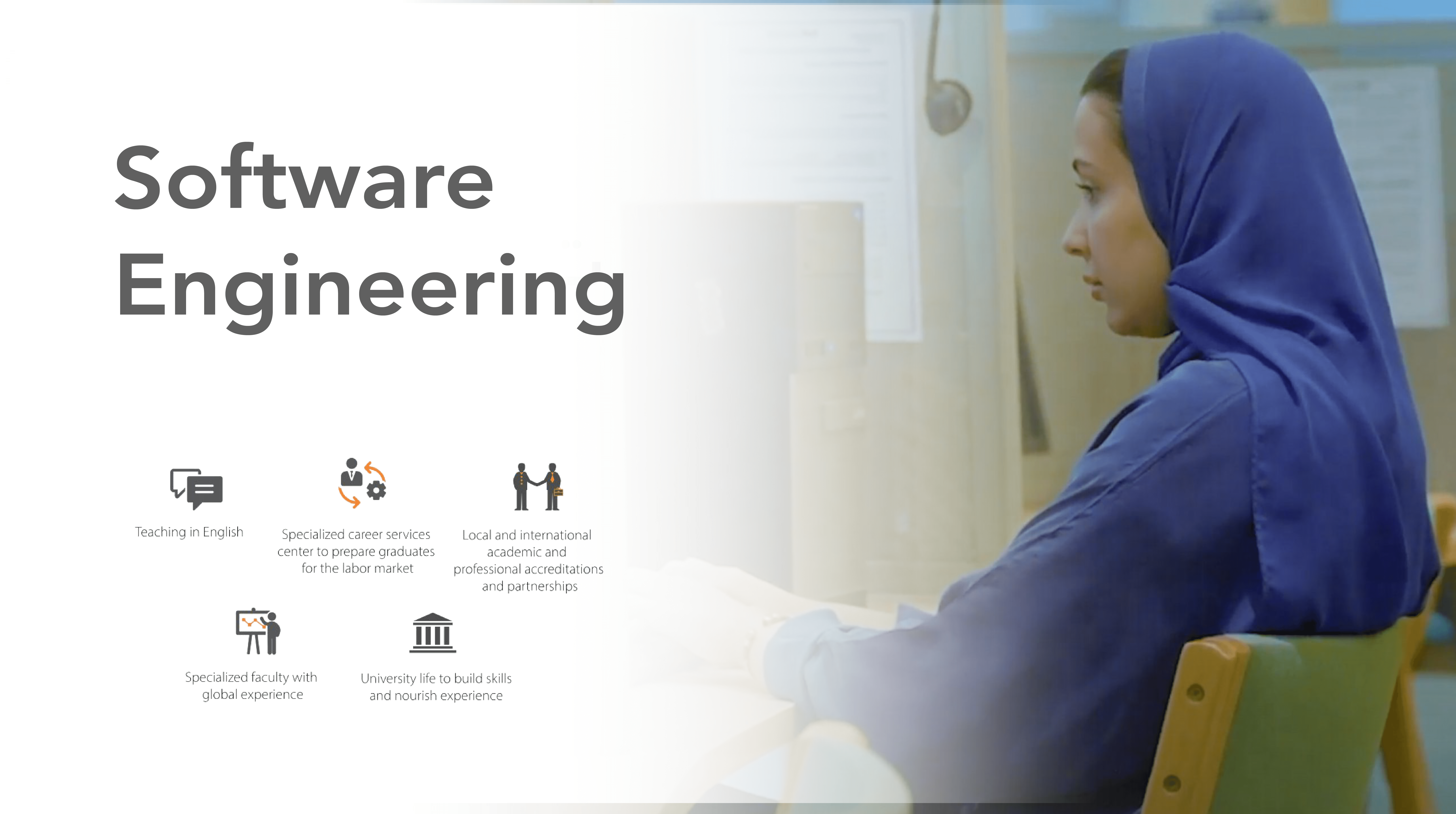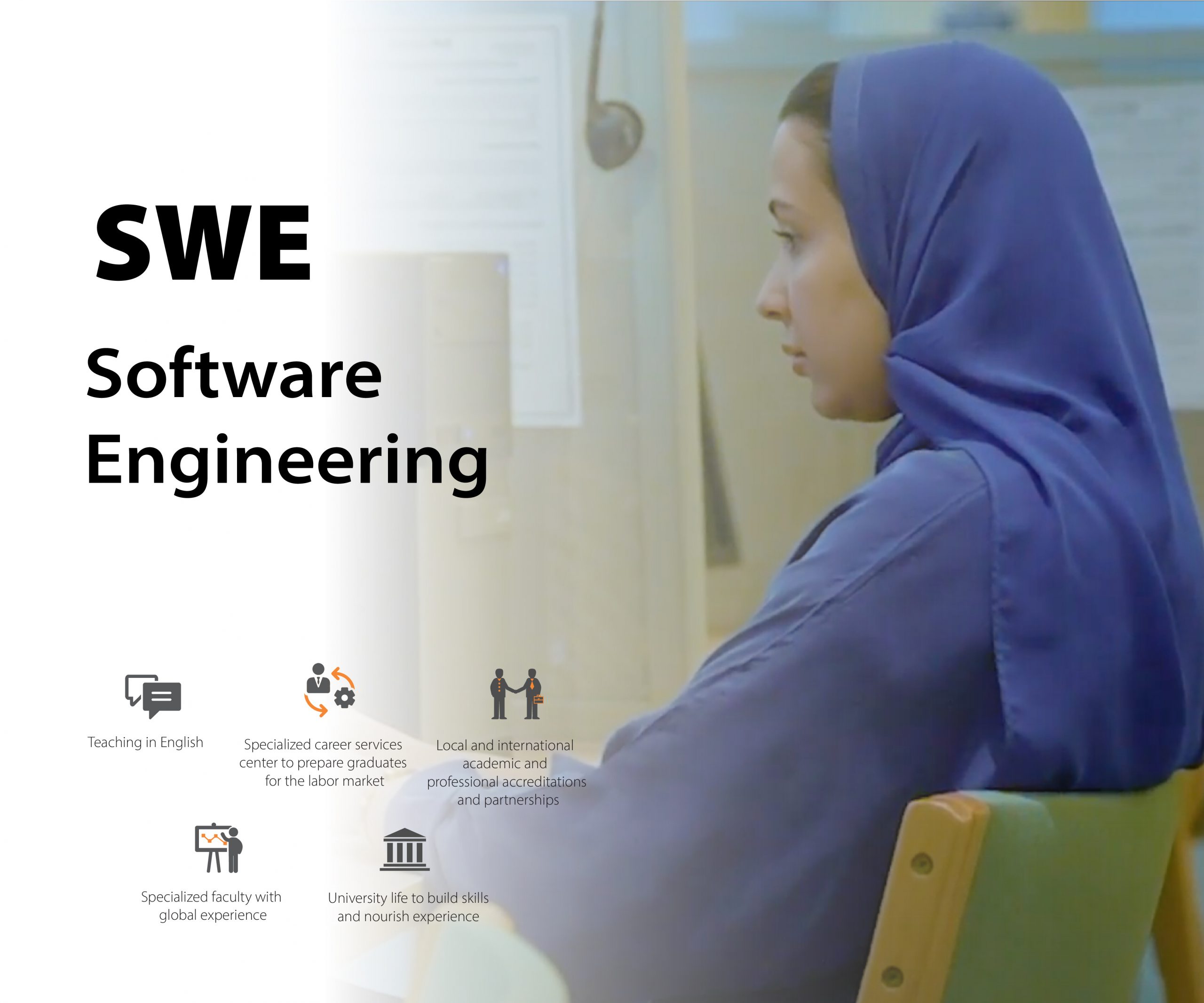The Program of Software Engineering (SWE) is to educate students for careers of software engineer in industry and research. The offered program will emphasis on developing the ability to analyze, design, verify, validate, implement, apply, and maintain software systems; the ability to appropriately apply discrete mathematics, probability and statistics, and relevant topics in computer science and supporting disciplines to complex software systems; and the ability to work in one or more significant application domains like graphics and media design
Mission
The software engineering program mission is to provide a distinguished academic instruction and training that is recognized for high-quality education and research, to prepare highly competent software engineers to be tomorrow’s leaders, to conduct state-of-the-art computing solutions to local problems, and to serve the community at large.
Vision
The vision of the software engineering program is to be a distinguished program in Software Engineering education, research and professional development.
The students should complete a minimum of 139 credit hours as specified in the study plan. All courses are taught in English.
Program Educational Objectives:
In 3 to 5 years after successfully completing the degree program, the SWE graduates will:
- PEO1: Be employed in private and public sector endeavors and demonstrate the ability to be a collaborative team member and demonstrate professional leadership and ethical responsibility.
- PEO2: Demonstrate the willingness to acquire advanced skills and knowledge to improve and advance their careers and cope with an ever-changing professional environment.
- PEO3: Graduates will provide solutions to challenging problems in their profession by applying Software engineering theories and principles.
Students Outcomes for SWE
- An ability to identify, formulate, and solve complex engineering problems by applying principles of engineering, science, and mathematics
- An ability to apply engineering design to produce solutions that meet specified needs with consideration of public health, safety, and welfare, as well as global, cultural, social, environmental, and economic factors
- An ability to communicate effectively with a range of audiences
- An ability to recognize ethical and professional responsibilities in engineering situations and make informed judgments, which must consider the impact of engineering solutions in global, economic, environmental, and societal contexts
- An ability to function effectively on a team whose members together provide leadership, create a collaborative and inclusive environment, establish goals, plan tasks, and meet objectives
- An ability to develop and conduct appropriate experimentation, analyze and interpret data, and use engineering judgment to draw conclusions
- An ability to acquire and apply new knowledge as needed, using appropriate learning strategies.


